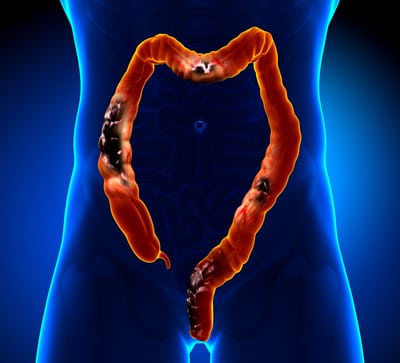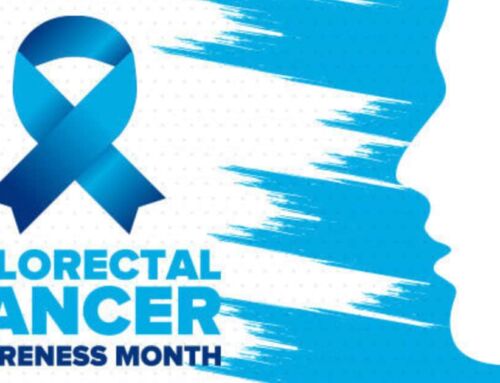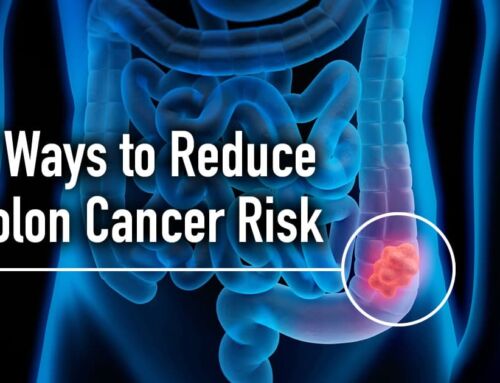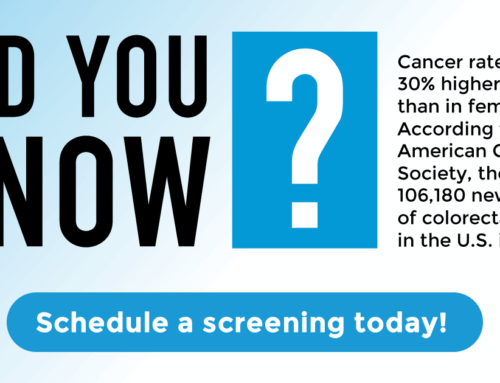According to the United States Centers for Disease Control and Prevention, Colon Cancer is the second leading cause of cancer death in the United States, right behind lung cancer. I spend time every day helping people become aware of it, monitor for it, diagnose it and help prevent it. Frequently, my patients ask me what they can do to help reduce their individual risk of getting colon cancer, so I decided to write a quick blog as a reference.
When I talk about colon cancer risk factors, I break them up into those you can do something about and those you can’t.
Colon Cancer risk factors that you can’t do anything about:
- Family History: One of the biggest risks for most diseases is genetics. The genes you inherit from your parents and their parents help determine who you are- good and bad. If you have a first degree relative (parent or sibling) who has had colon cancer it doubles your risk for colon cancer. If you have a first degree relative with colon cancer you should have your first colonoscopy by age 40 years old (or 10 years younger than the age at which your relative was diagnosed, whichever is first) and you should then have a colonoscopy every 5 years.
- Age: Current recommendations are for the average person you should have your first colonoscopy at age 50. But then don’t stop. Even if you don’t have polyps on your first exam your risk continues to go up as you get older and you should have repeat screening at 10 year intervals.
- Inflammatory Bowel Disease: If you have ulcerative colitis or Crohn’s disease of the colon your risk is higher as well. Screening depends on duration of disease and amount of colon involved. If you have ulcerative colitis or Crohn’s colitis discuss with your gastroenterologist when you need to be screened.
- Polyp syndromes: If you have genetic conditions like familial adenomatous polyposis (FAP) or hereditary nonpolyposis colon cancer (HNPCC or Lynch Syndrome) your risk is higher and requires more frequent colonoscopy.
- Personal history of polyps: If you have had polyps on your colonoscopy in the past and the polyps were adenomas, your risk remains higher as well.
Now some Colon Cancer risk factors that you can do something about:
- Cigarette smoking: I know it feels like us physicians get on you for smoking every time you turn around, but it’s with good reason. Along with all the things cigarettes get blamed for, increased risk of colorectal adenomas (precancerous polyps) and colon cancer are among them. Smoking cessation will decrease your risk of getting colon cancer.
- Alcohol: Drinking in moderation is likely ok and may have some health benefits. However, drinking 3 or more alcoholic beverages a day increases your risk of both adenomas and colon cancer.
- Obesity: Being overweight is one of the biggest health problems in our society today. Along with all the risks being obese have on your health, increased risk of colon cancer is included.
- Physical activity: A lifestyle that includes regular physical activity and exercise can reduce your risk of colon cancer.
- Aspirin: Studies have shown a decreased risk of colon cancer and death from colon cancer in patients who take daily low dose aspirin. Discuss this with your physician as we have to weigh these benefits against the risks of daily aspirin, like ulcers and bleeding.
- Diet: We are not as sure on this one. Some evidence shows diets high in fat, meat and calories increases your risk of colon cancer, but it is not known for sure if reducing these things in your diet will decrease your risk. Still a good idea though for your overall health and I always encourage my patients to have a low fat diet.
- Polyp removal: The biggest thing you can do to help prevent colon cancer is get regular colonoscopy by a qualified gastroenterologist and get any polyps you may have removed.
We still see colon cancer way too often. However, with healthy life style choices including avoiding tobacco and excess alcohol, healthy diet, weight control and regular physical activity you can do your best to reduce your own risk. Then, through regular age and risk appropriate colorectal cancer screening with colonoscopy you can be assured you have done all you can to reduce your risk of colon cancer. I hope this was helpful.
Click this link if you would like to learn more about colon cancer – symptoms, causes & prevention.






